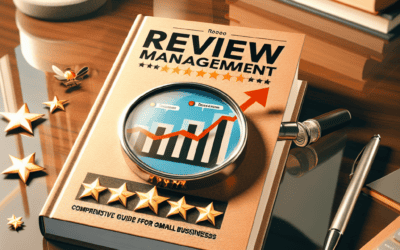Many businesses underestimate the importance of reputation management until it’s too late. In today’s digital age, where a single negative review can spread like wildfire on social media, maintaining a positive reputation is crucial for the success of any company. In this article, we will explore the power of reputation management through the analysis of real-life case studies.
Case Study 1: The Airline Industry
In 2017, United Airlines faced a major crisis when a video of a passenger being forcibly removed from an overbooked flight went viral. The incident sparked outrage among consumers, resulting in a significant drop in the airline’s stock prices and a barrage of negative press. United’s reputation took a major hit, and the company’s response to the crisis was crucial in determining the extent of the damage.
United Airlines immediately issued a public apology and launched an investigation into the incident. The company also implemented new policies to prevent similar situations from occurring in the future. Through transparent communication and a commitment to accountability, United was able to salvage its reputation and regain the trust of customers.
Case Study 2: The Retail Industry
In 2018, clothing retailer Forever 21 faced backlash after customers discovered that the company was using sweatshop labor to manufacture its products. The news spread quickly on social media, leading to a boycott of the brand by ethical consumers. Forever 21’s reputation as a trendy and affordable retailer was tarnished, and the company’s sales suffered as a result.
Forever 21 responded to the crisis by issuing a public statement denouncing the use of sweatshop labor and promising to take immediate action. The company also conducted a thorough investigation into its supply chain and implemented new policies to ensure ethical manufacturing practices. Through these efforts, Forever 21 was able to regain the trust of its customer base and rebuild its reputation as a socially responsible brand.
Case Study 3: The Technology Industry
In 2019, tech giant Facebook faced scrutiny over its handling of user data and privacy concerns. The company was accused of selling user data to third-party companies without consent, leading to a wave of negative publicity and legal challenges. Facebook’s reputation as a trusted platform for social networking was called into question, and the company’s stock prices plummeted as a result.
Facebook responded to the crisis by launching a comprehensive privacy review and revamping its data security policies. The company also implemented new measures to increase transparency and accountability in its data practices. Through these efforts, Facebook was able to regain the trust of its users and stakeholders, demonstrating the power of reputation management in action.
Conclusion
These case studies highlight the importance of reputation management in today’s fast-paced and interconnected world. In the face of a crisis, businesses must respond swiftly and decisively to maintain trust and credibility with consumers. By being transparent, accountable, and proactive in addressing issues, companies can protect their reputations and secure their long-term success. Reputation management is not just about damage control—it’s about building resilience and trust in the face of adversity.
Remember, your reputation is your most valuable asset as a business. Invest in it wisely and make reputation management a priority in your strategic planning. Your company’s success depends on it.
Stay tuned for more insights on reputation management and other topics in entrepreneurship from Entrepreneur Magazine.
Get A Free 30-day Trial of Reputation Riser: Try Reputation Riser
Easily Respond to All Reviews Good or Bad with our Review Responder software. Try for FREE: Review Responder Free Trial
Start Marketing Your 5-Star Reputation with Reputation Videos
Reserve a Strategy Call




0 Comments